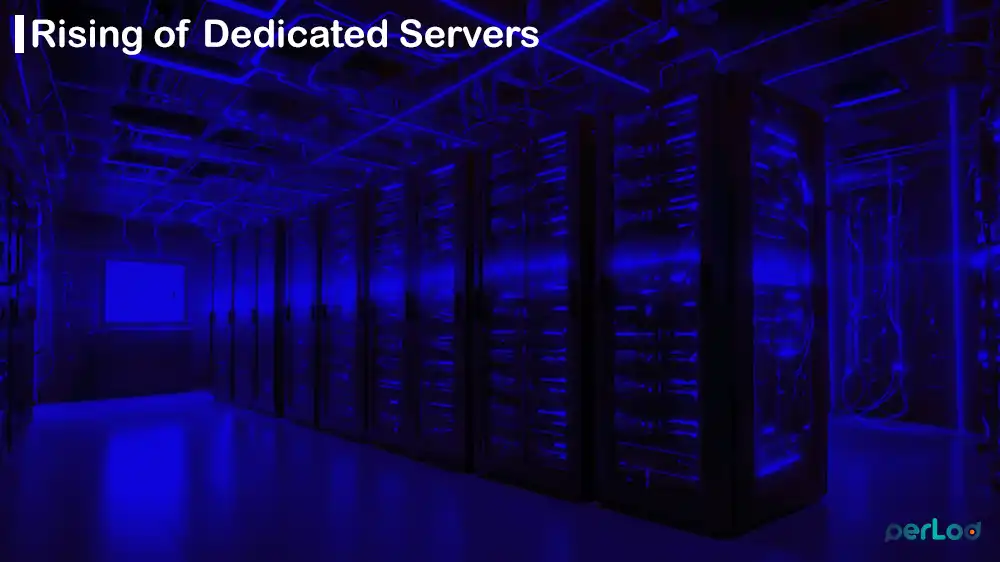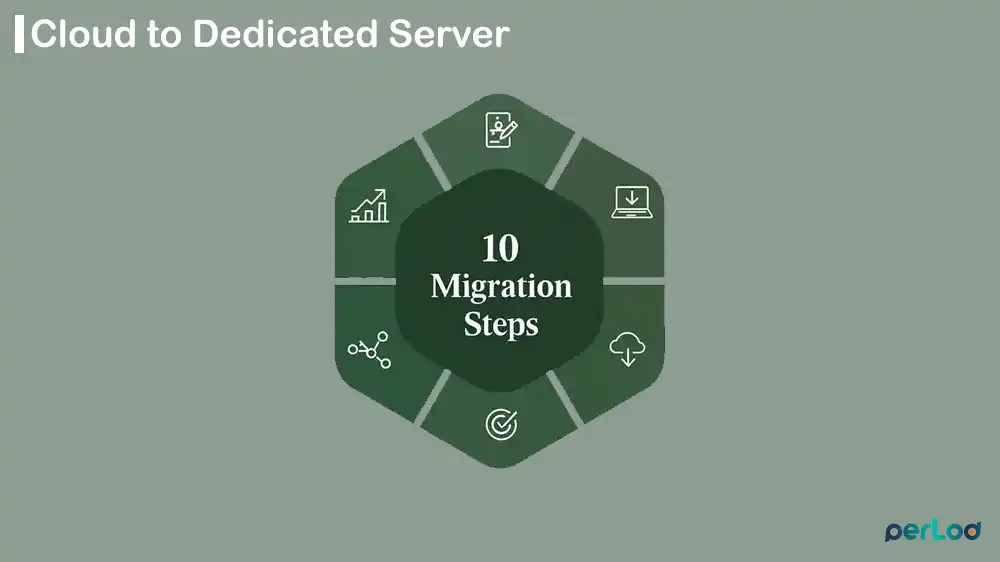
Dedicated Servers Resurgence 2025
For many years, cloud computing has been the flexible and scalable choice for businesses. Many companies assumed that the cloud was the only way. But in 2025, we are having a clear change with the dedicated servers resurgence 2025. With the rise of cloud costs, increased security concerns, and requests for consistent performance, dedicated servers are making a comeback in 2025. Organizations and companies are starting to recognize the advantages of having full control over their infrastructure, and as a result, dedicated servers are becoming a reliable, cost-effective, and strategic choice. Get your dedicated server from our site and enjoy reliable, secure, and cost-effective hosting tailored for your business.
What You Will Read
Why Businesses Are Leaving the Cloud?

Businesses are leaving the cloud because of the high costs, performance issues, and security concerns. Nowadays, many companies believe that dedicated servers can be a better choice because they give them more stability, better control, and long-term savings.
1. Cost Control and Predictable Billing
At first, cloud services may look cheap, but with extra storage, bandwidth, and hidden fees, the costs can quickly rise. On the other hand, dedicated servers offer fixed pricing, which makes it easier for businesses to plan their budgets.
2. Compliance, Data Sovereignty, and Security
Many organizations and companies must follow the rules about where data is stored and how it is protected, which can be difficult in cloud services. With dedicated servers, companies know exactly where the data is located and can apply custom security measures. This will make compliance easier to manage.
3. Performance Demands and Noisy Neighbors
Resources in cloud services are shared, which means performance can drop when others on the same server use too much power. This is also known as “Noisy Neighbor”. Dedicated servers remove this issue by giving companies full access to hardware for consistent and reliable performance.
Why Dedicated Servers Are Making a Comeback in 2025?

Cloud services have been chosen for flexibility and fast setup, but now we are seeing Dedicated Servers Resurgence 2025. This shift is happening because companies want more control, stability, and fixed pricing. As we said in the previous step, cloud services have high costs, performance issues, and security concerns. Dedicated servers are making a comeback in 2025 because they solve these problems by offering a fixed cost, private infrastructure, and reliable power without the risk of “noisy neighbors.”
Here are the key drivers behind the Dedicated Servers Resurgence 2025:
- Rising Cloud Costs
- Security and Compliance Needs
- Performance and Reliability
- Data Sovereignty Concerns
- Long-Term Cost Efficiency
Choosing the Right Dedicated Server Solution
Once the businesses plan to move to dedicated servers, the next essential step is choosing the right setup. With the right dedicated server setup, you can get the best balance of performance, cost, and reliability. Here are the main options you must consider:
Workload Requirements
First of all, you must know what your server wants to do. If your business has heavy apps like databases, video streaming, or online gaming, you will need strong processors, a lot of RAM, and fast storage. On the other hand, if you want to host a simple website or internal tools, a basic server setup will be ok. Understanding your workload requirements will help you choose the right server setup.
Scalability and Growth
In the future, your business might grow and you will need more storage, faster performance, or higher bandwidth. Because of this, it is important to choose the right provider that makes it easy to upgrade your server without downtime or migration issues. Scalability in dedicated servers ensures your server will grow with your business.
Location and Compliance
For some industries, location and compliance are important. Choosing a server in the right region will help you follow the strict rules and improve speed.
Security and Protection
One of the main reasons that dedicated servers are coming back is security. Remember to look for providers that offer built-in protection, like firewalls, DDoS defense, and backup options. With a good dedicated server, you can customize your own security settings, and you will have full control over how your data is protected.
Managed vs. Unmanaged Servers
You need to decide how much control and responsibility you want. Here, a managed server and an unmanaged server will come.
A managed server means the provider handles updates, monitoring, and maintenance, which is perfect if your business doesn’t have an IT team. An unmanaged server gives you full control, but you’ll need the technical skills to manage everything yourself.
Cost vs. Long-Term Value
Pricing in businesses is important. You must focus on the overall value and not just the monthly bills. Dedicated servers with better performance, strong support, and higher reliability will save money in the long term.
In short, we must say that choosing the right dedicated server means looking at your workloads, growth plans, compliance needs, and security requirements, then balancing these with your business budget.
Migration Steps From Cloud to Dedicated Server

Here is an explanation for migrating from the cloud to a dedicated server:
1. Understand what you have in the cloud: First, you must list all cloud apps, databases, websites, storage, and services. Realize how much memory, CPU, and storage they use.
2. Choose the right dedicated server: According to your needs, choose the right dedicated server, whether you want a managed or an unmanaged server.
3. Create a detailed migration plan: Then, you must decide the order in which services will move, set timelines, and recognize potential risks. Making a detailed migration plan avoids transfer risks and has minimal downtime.
4. Make a full backup of everything: Be sure to make a full backup of all your data, apps, and configs. During the migration, if something goes wrong, you can recover your data.
5. Set up the dedicated server: Next, you must prepare your new server by installing the OS, security measures like firewalls and antivirus, and the required software. Be sure the new server matches what you had in the cloud.
6. Migrate data and apps: At this step, you can move everything from the cloud to the dedicated server.
7. Check that everything is running smoothly: After migration, test website speed, app performance, and database access. Verify security settings, backups, and firewalls are working correctly.
8. Update DNS and network settings: If your website or services have domain names, update the DNS records to point to the new dedicated server. Make sure all network configurations are correct to avoid downtime for users.
9. Monitor and optimize the server: For the first few weeks after migration, you must monitor the server for performance issues, errors, or unusual activity. Also, you can optimize the resources and adjust settings if needed.
10. Communicate with your team: Provide the new user access instructions and let them know about improvements like faster performance or enhanced security.
Key Tip: Always plan for extra time and resources. Even with careful planning, migrations can have unexpected challenges.
Future Outlook: 2030 Predictions and Trends
By 2030, dedicated servers are expected to remain important alongside the cloud. You can expect hybrid hosting, stronger security, high-performance needs, edge community, cost, and efficiency from dedicated servers.
In short, dedicated servers will continue to provide security, performance, and cost control, while working alongside the cloud to meet future business needs.
We hope you enjoy this article. Stay updated with the latest tips, trends, and news about hosting and dedicated servers. Subscribe to our Facebook and X channels to get expert advice, special offers, and helpful guides delivered straight to you!
FAQs
Who should consider using a dedicated server?
Businesses with high-performance workloads, sensitive data, compliance requirements, or websites and applications that need consistent speed and reliability should consider dedicated servers.
Can I upgrade or scale a dedicated server?
Yes. Many providers allow you to upgrade resources such as CPU, RAM, storage, and bandwidth as your business grows.
Is security better on dedicated servers than in the cloud?
Generally, yes. Dedicated servers give you full control over security settings, firewalls, and backups, reducing risks compared to shared cloud environments.
